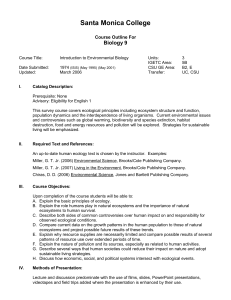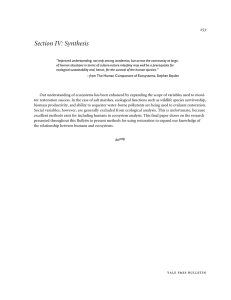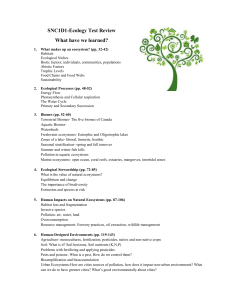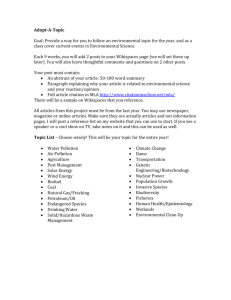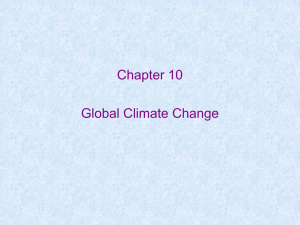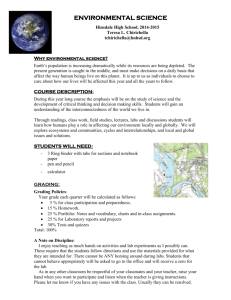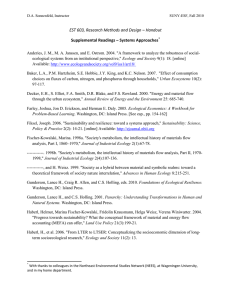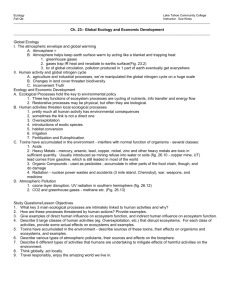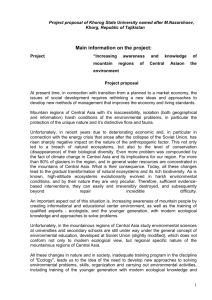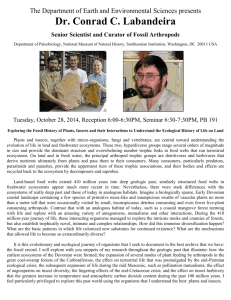BIOL 4131
advertisement
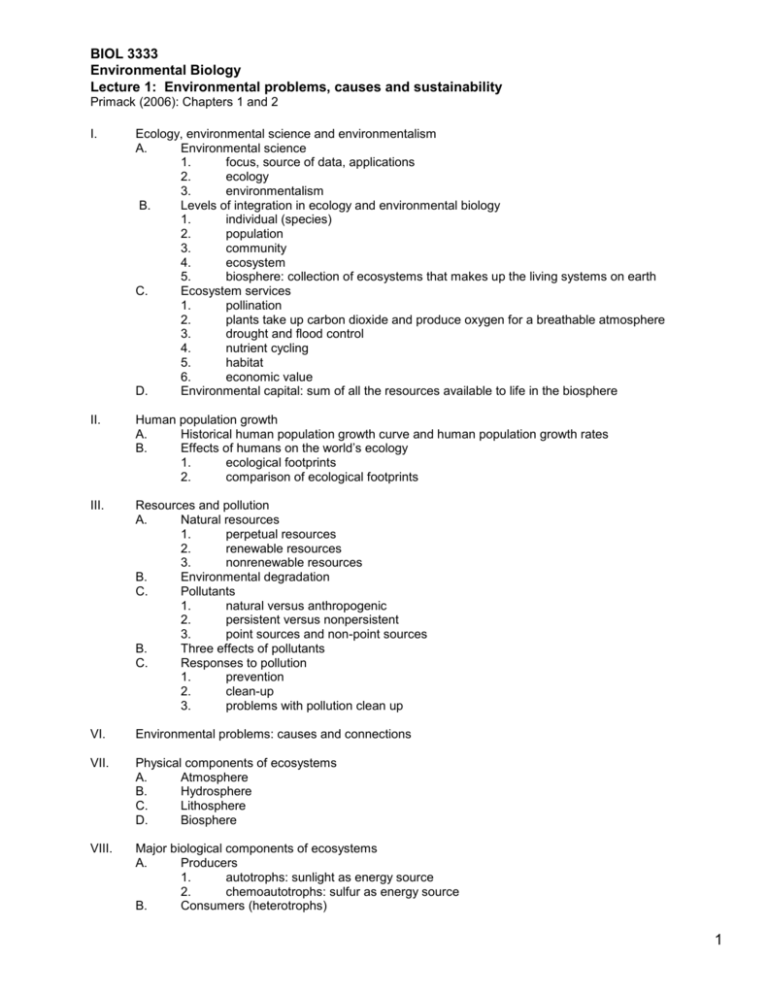
BIOL 3333 Environmental Biology Lecture 1: Environmental problems, causes and sustainability Primack (2006): Chapters 1 and 2 I. Ecology, environmental science and environmentalism A. Environmental science 1. focus, source of data, applications 2. ecology 3. environmentalism B. Levels of integration in ecology and environmental biology 1. individual (species) 2. population 3. community 4. ecosystem 5. biosphere: collection of ecosystems that makes up the living systems on earth C. Ecosystem services 1. pollination 2. plants take up carbon dioxide and produce oxygen for a breathable atmosphere 3. drought and flood control 4. nutrient cycling 5. habitat 6. economic value D. Environmental capital: sum of all the resources available to life in the biosphere II. Human population growth A. Historical human population growth curve and human population growth rates B. Effects of humans on the world’s ecology 1. ecological footprints 2. comparison of ecological footprints III. Resources and pollution A. Natural resources 1. perpetual resources 2. renewable resources 3. nonrenewable resources B. Environmental degradation C. Pollutants 1. natural versus anthropogenic 2. persistent versus nonpersistent 3. point sources and non-point sources B. Three effects of pollutants C. Responses to pollution 1. prevention 2. clean-up 3. problems with pollution clean up VI. Environmental problems: causes and connections VII. Physical components of ecosystems A. Atmosphere B. Hydrosphere C. Lithosphere D. Biosphere VIII. Major biological components of ecosystems A. Producers 1. autotrophs: sunlight as energy source 2. chemoautotrophs: sulfur as energy source B. Consumers (heterotrophs) 1 C. D. E. F. IX. Food webs and energy flow in ecosystems 1. food chains 2. trophic levels 3. food webs Primary production 1. photosynthetically active radiation (PAR) 2. photosynthesis pigments 3. chemical reactions of photosynthesis 6. ecological efficiencies of plants Secondary production 1. ecological efficiencies of animals: Lindeman efficiency 1. exploitation efficiency 2. assimilation efficiency 3. net production efficiency 4. ecological or food chain efficiency Energy flow through food chains 1. homeotherm food chain 2. poikolotherm food chain Nutrient cycling in ecosystems A. Hydrologic cycle B. Carbon cycle C. Nitrogen cycle 1. nitrogen fixation 2. nitrification 3. ammonification 2


